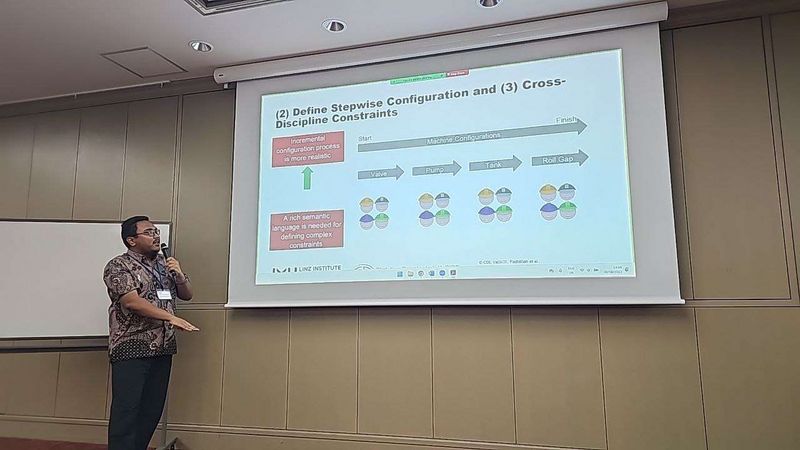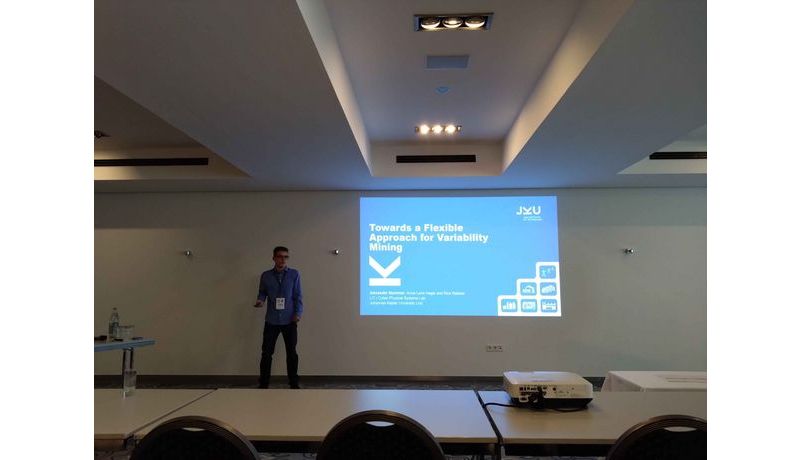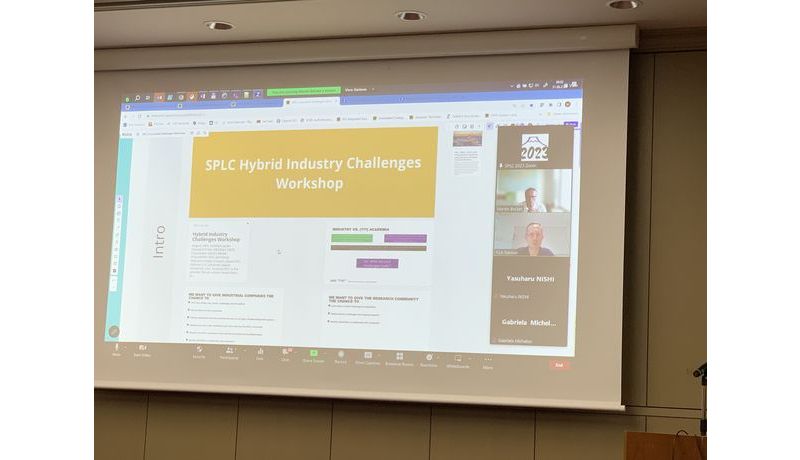From September 2nd to 6th, 2024, our team participated in the 28th ACM International Systems and Software Product Line Conference (SPLC 2024) in Luxembourg. Professor Rick Rabiser describes the conference as "the most important event for our research field." But what role did our team play in contributing to the success of this event?
Our contributions
We are proud to have presented several papers and talks across various workshops and sessions:
At the MODEVAR, opens an external URL in a new window Workshop Sayyid presented:
Hafiyyan Sayyid Fadhlillah and Rick Rabiser: Towards a Product Configuration Representation for the Universal Variability Language. https://doi.org/10.1145/3646548.3676544, opens an external URL in a new window
Rick presented his paper on
Industry Adoption of UVL: What We Will Need. https://doi.org/10.1145/3646548.3676597, opens an external URL in a new window
At the ReVolution, opens an external URL in a new window Workshop Alex presented:
Alexander Stummer, Anna-Lena Hager, Rick Rabiser: Towards a Flexible Approach for Variability Mining. doi.org/10.1145/3646548.3676543, opens an external URL in a new window
At the SPLC/ECSA Doctoral Symposium, opens an external URL in a new window Rick gave a keynote on:
How to complete your PhD and why. https://tinyurl.com/splcecsads2024, opens an external URL in a new window
At the SPLC Main conference, opens an external URL in a new window Rick gave a talk on:
Martin Becker, Rick Rabiser, Goetz Botterweck: Not Quite There Yet: Remaining Challenges in Systems and Software Product Line Engineering as Perceived by Industry Practitioners. https://doi.org/10.1145/3646548.3672587, opens an external URL in a new window
Our experiences
"The feedback we received at this conference confirmed our plans and also inspired ideas for new research questions”, summarizes Rick. Sayyid adds, “For me, it was outstanding how welcoming and friendly the research community was—especially to newcomers in the field. Besides this impression, I enjoyed learning about emerging approaches to variability management, such as AI and machine learning methods.”
 Go to JKU Homepage
Go to JKU Homepage











